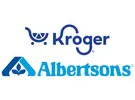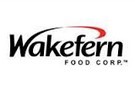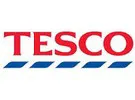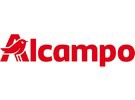Closing statements on the Kroger, Albertsons merger are done. Case in judge's hands now During closing arguments Tuesday in the Kroger, Albertsons federal merger trial in Portland, Ore., attorneys for the Federal Trade Commission asked a U.S. District Court judge to block the deal, according to reports.
During closing arguments Tuesday in the Kroger, Albertsons federal merger trial in Portland, Ore., attorneys for the Federal Trade Commission asked a U.S. District Court judge to block the deal, according to reports.
During the final day of the trial, FTC lawyers asked U.S. District Judge Adrienne Nelson to issue a preliminary injunction that would pause the merger while an in-house administrative law judge reviewed the complaint. The FTC said it believes the merger would indeed lead to higher food prices in an already troubled economy still grappling with inflation. The agency contends that Kroger and Albertsons compete with one another (and not the likes of Amazon or Costco) and that removing that competition would ultimately be harmful to the consumer.
The FTC trial was the beginning of a series of trials lobbying against the Kroger, Albertsons merger. A trial for a lawsuit brought by the state of Washington began Monday, and Colorado will start its trial against the merger on Sept. 30.
Source: Supermarketnews
Simbe expands partnership with Wakefern Food Simbe shared that it is expanding its work with Wakefern Food, a retailer-owned supermarket cooperative in the United States. The latest cooperative organizations to add Simbe's technology to stores include Wakefern Member Inserra Supermarkets, which owns and operates 23 ShopRite stores, and Shop-Rite Supermarkets, a wholly-owned subsidiary of Wakefern that operates 37 ShopRite stores in New York and New Jersey. Both are implementing Tally's AI-powered solution.
Simbe shared that it is expanding its work with Wakefern Food, a retailer-owned supermarket cooperative in the United States. The latest cooperative organizations to add Simbe's technology to stores include Wakefern Member Inserra Supermarkets, which owns and operates 23 ShopRite stores, and Shop-Rite Supermarkets, a wholly-owned subsidiary of Wakefern that operates 37 ShopRite stores in New York and New Jersey. Both are implementing Tally's AI-powered solution.
The advanced autonomous item-scanning robot, Tally looks for out-of-stock and misplaced items and helps retail teams focus more on customers and the customer experience.
Source: Drugstorenews
Produce cost anxieties weigh on supermarket consumers
Price concerns are having a growing influence on shopper interest in produce. In a nationally representative August survey of 1,628 consumers for the Southeast Produce Council's What's New? 2024 report, 33% of shoppers listed money/budget as their top purchase driver, up from 32% in 2023, and the leading overall driver.
Despite an easing of inflation and deflation, 76% of consumers still believe that produce prices are higher than the previous year, the survey found. "The combined impact of several years of inflation in all things life has changed what, how much, and where people purchase produce," said David Sherrod, president and chief executive officer of the Millen, Ga.-based Southeast Produce Council.
Source: Supermarketnews
Apple juice recall expanded to include other brands Refresco Beverages expanded an ongoing recall for apple juice products sold at Walmart and other store locations. The recall now includes 133,500 cases of Great Value, Market Basket, Nice!, Weis, Urban Meadow, Nature's Nectar, Wellsley Farms, Solevita, and Clover Valley apple juices. The company initially recalled 9,535 cases of Great Value brand apple juice last month over concerns they contain harmful levels of inorganic arsenic.
Refresco Beverages expanded an ongoing recall for apple juice products sold at Walmart and other store locations. The recall now includes 133,500 cases of Great Value, Market Basket, Nice!, Weis, Urban Meadow, Nature's Nectar, Wellsley Farms, Solevita, and Clover Valley apple juices. The company initially recalled 9,535 cases of Great Value brand apple juice last month over concerns they contain harmful levels of inorganic arsenic.
The Food and Drug Administration upgraded the recall to a Class II on Aug. 23, meaning exposure to the recalled apple juices could cause adverse health consequences but would be unlikely to cause serious or irreversible issues. On Sept. 9, Refresco said there were no reported incidents in connection with the recall.
Source: Topclassactions
UK: Tesco plans to use AI to 'nudge' customers towards deals and healthier options Tesco boss Ken Murphy revealed the supermarket giant is considering using its Clubcard data to "nudge" customers towards healthier and cheaper alternatives. The chief executive said the supermarket was using artificial intelligence to monitor how its customers were shopping to provide suggestions on what products to buy next in an effort to deliver better value to consumers.
Tesco boss Ken Murphy revealed the supermarket giant is considering using its Clubcard data to "nudge" customers towards healthier and cheaper alternatives. The chief executive said the supermarket was using artificial intelligence to monitor how its customers were shopping to provide suggestions on what products to buy next in an effort to deliver better value to consumers.
Speaking at the FT's Future of Retail on Tuesday, Murphy said: "It can start nudging you to say if you wait another week to buy this, this is coming on a deal". He explained that artificial intelligence can also encourage Tesco customers to be more selective in how much they are buying to reduce food wastage, as well as provide suggestions on healthier substitutions in their shopping.
Source: Retail Gazette
Netherlands/Germany: Flink raises $150M despite rapid grocery delivery sector slowdown Flink, one of the few rapid grocery delivery startups left operating in Europe, has secured $150mn to grow its business in Germany and the Netherlands. The funding comprises $115 million in equity and $35 million in debt, with backing from both new and existing investors, including BOND, Northzone, and supermarket chain REWE. This reportedly brings the company's valuation to nearly $1bn.
Flink, one of the few rapid grocery delivery startups left operating in Europe, has secured $150mn to grow its business in Germany and the Netherlands. The funding comprises $115 million in equity and $35 million in debt, with backing from both new and existing investors, including BOND, Northzone, and supermarket chain REWE. This reportedly brings the company's valuation to nearly $1bn.
With the fresh capital, Flink plans to "expand [its] footprint, improve operational efficiency, and continue delivering […] its service" in the two countries, said Oliver Merkel, the startup's founder and managing director. The Berlin-based startup will carry out this plan in partnership with Amsterdam-based Just Eat Takeaway.
Source: TheNextWeb
UK: Supermarket chain to introduce 24-hour delivery service for shoppers Co-Op is set to be one of the first retailers to launch a 24-hour delivery service. The supermarket chain said it is responding to growing demand for round-the-clock services from consumers such as shift workers, parents of young families, and late-night revellers looking for top-ups to keep parties going.
Co-Op is set to be one of the first retailers to launch a 24-hour delivery service. The supermarket chain said it is responding to growing demand for round-the-clock services from consumers such as shift workers, parents of young families, and late-night revellers looking for top-ups to keep parties going.
Co-op is a quick-commerce store across all major platforms - and new research by the company found 40% of its shoppers who use this service would order between 11 pm and 5 am if that was available. This figure rises to almost one in two consumers aged between 18 and 44, with the service most popular for Gen Z shoppers aged 18 to 24, with 52% of them saying they would make all-night deliveries.
Source: Mirror
Sweden: Startup brings farm to supermarket
weGreen, a Stockholm-based startup, has given a new meaning to the word farm fresh after bringing farms to the supermarket. The company has installations in Sweden and Germany and is showcasing a sustainable way to grow crops while also reducing food wastage and carbon emissions.
With the global population likely to hit nearly 10 billion by 2050, shrinking agricultural land due to climate change, and increased risks of global trade due to geopolitical tensions, countries need to work now to ensure food security. Swedish startup SweGreen offers an innovative solution to all this by bringing farms to the supermarket, where people pick their fruits and vegetables. SweGreen uses a well-known method of soilless agriculture called hydroponics. In this, plants are grown in rock wool plugs instead of soil, and a continuous flow of water provides the nutrients for them to grow.
Source: Interesting Engineering
Belgium: Geoffroy Gersdorff "Carrefour Belgium will break even in 2024" Carrefour has had a difficult first half of the year in Belgium, CEO Geoffroy Gersdorff admitted, but it is preparing for the crucial year-end period with a clear ambition: "We are going to achieve our objectives." The CEO had invited the press to the Carrefour Salon, the big end-of-year fair where 2,000 employees from 720 shops came to learn about the new products, concepts and commercial promotions for the autumn. The next four months are a crucial period as the holiday season always accounts for a substantial part of annual sales.
Carrefour has had a difficult first half of the year in Belgium, CEO Geoffroy Gersdorff admitted, but it is preparing for the crucial year-end period with a clear ambition: "We are going to achieve our objectives." The CEO had invited the press to the Carrefour Salon, the big end-of-year fair where 2,000 employees from 720 shops came to learn about the new products, concepts and commercial promotions for the autumn. The next four months are a crucial period as the holiday season always accounts for a substantial part of annual sales.
The focus during the show was on private label products, which should come as no surprise. "One in two products we sell in our shops is a private label product", the CEO pointed out. "We have expanded their range and improved the products. Our range is constantly evolving: we have dropped 6,000 references in recent years and added 2,000 new ones to respond to customer expectations. These really are a 'moving target' these days: difficult to keep in sight."
Source: Retail Detail
Spain: The cheapest and most expensive supermarkets in Spain, according to leading consumer group A report from the OCU organization of consumers and users has presented its annual study on the prices in the main supermarkets. According to this report, Spanish families can save an average of 1,272 euros a year on their shopping basket, depending on whether they go to one chain or another.
A report from the OCU organization of consumers and users has presented its annual study on the prices in the main supermarkets. According to this report, Spanish families can save an average of 1,272 euros a year on their shopping basket, depending on whether they go to one chain or another.
According to the data collected, Alcampo is the cheapest national supermarket chain for shopping in Spain, while Sánchez Romero remains the most expensive. Among the local supermarket groups, the cheapest is Supermercados Dani, located in Granada and Jaén; Tifer, in Castilla y León; Deza (Cordoba), Family Cash, and Más Ahorro (Cordoba), while the most expensive are Sánchez Romero, Altoaragon and Amazon.
Source: SurinEnglish
